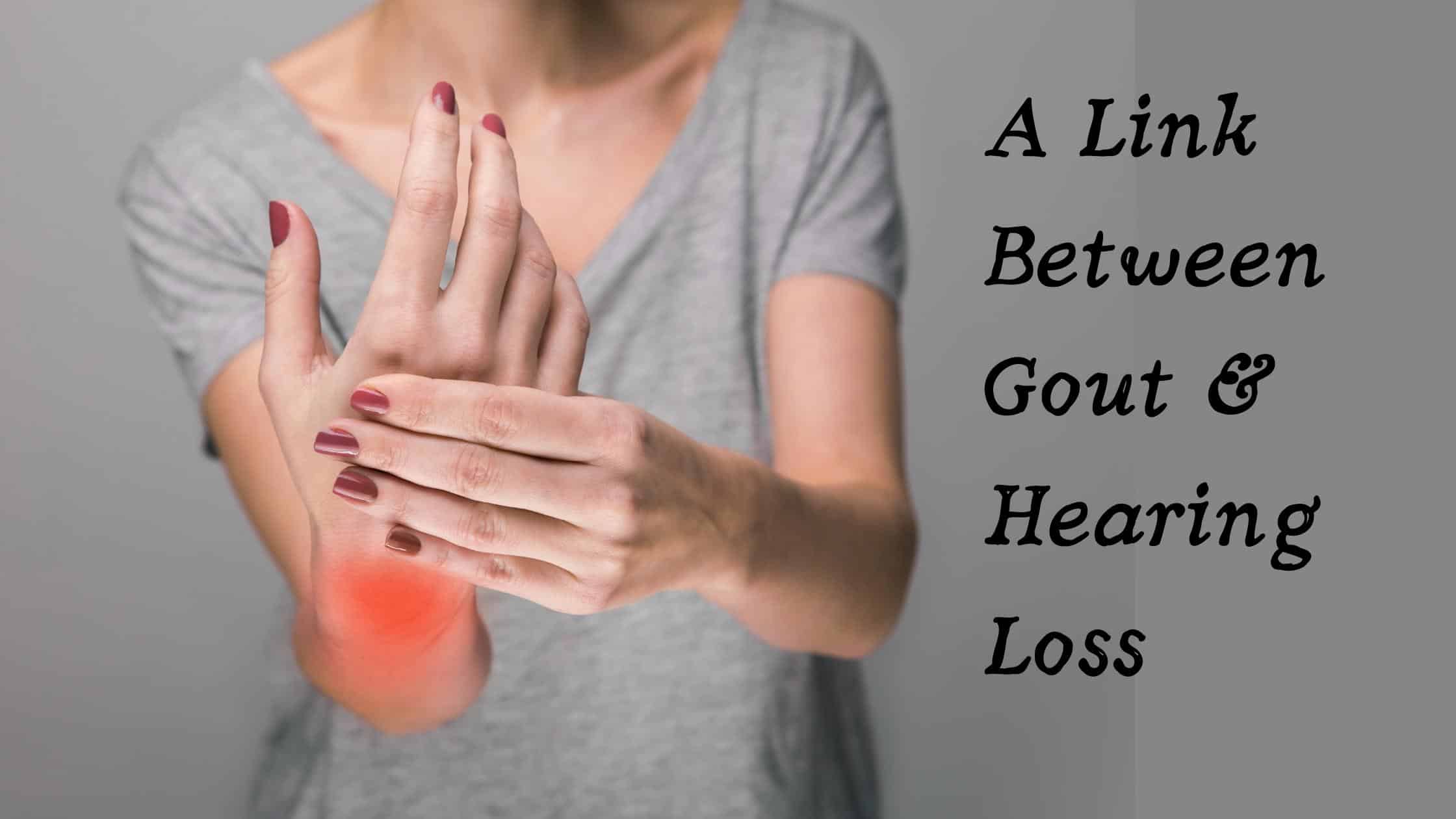
Hearing loss is a pervasive medical condition that nearly 48 million people navigate. It is estimated that 1 in 5 people have some degree of hearing loss in one or both ears. A chronic and permanent health condition, hearing loss produces a range of symptoms that reduce a person’s capacity to absorb and process sound. This affects all aspects of life: communication, relationships, social engagement, professional responsibilities etc. Identifying risk factors is a useful way to prevent the development of impaired hearing and protect hearing health. Research shows that gout is a risk factor, specifically revealing that people with gout can be more likely to experience hearing loss.
What is Gout?
Gout is a type of arthritis that is characterized by intense pain and inflammation in the joints. This commonly occurs in the foot, specifically the big toe which becomes swollen, hot, and tender. Gout can also manifest in the ankles, knees, and fingers as well as other joints. The pain produced by gout, which usually occurs suddenly, can last for a short period or be chronic, lasting for weeks.
Gout is caused by excess levels of uric acid in the body. Uric acid is produced by the body from purines which are natural substances. Typically, uric acid is processed in the blood and travels through the kidneys and out through urine. But the body can produce higher levels of uric acid or the kidneys can release too little of it. This causes the acid to accumulate, forming urate crystals in and around joints. This surrounds joint tissue which produces the symptoms associated with gout: swelling, pain, tenderness etc.
Link Between Gout & Hearing Loss
Recent research establishes a link between gout and hearing loss. Studies show that people with gout can be more likely to develop hearing loss. In a 2018 study, researchers investigated this correlation by analyzing Medicare claims of new hearing loss. The study included the following:
- Study: researchers collected and examined 5% of all Medicare records from 2006-2012, specifically looking at claims of new hearing loss for people 65 and older. 89,409 people developed hearing loss among the 1.71 million people in this study.
- Findings: people with gout were 44% more likely to have hearing loss compared to people without gout.
Though further studies are needed to reveal the specifics on how gout can contribute to hearing loss, researchers suggest that the formation of urate crystals which produce inflammation and oxidative stress impacts the auditory system. This can impact the joints in the middle ear which help absorb and propel soundwaves further into the inner ear. Useful ways to prevent experiencing these correlated conditions are to be proactive about your health!
Preventing Gout
An effective way to prevent gout is to focus on keeping uric acid levels low. Purines – which get broken down into uric acid in the body – can also be found in specific foods and beverages. Tips to reduce gout include:
- eating less red meat and shellfish. Avoiding beverages sweetened with fructose as well as reducing alcohol consumption.
- drinking plenty of water which helps flush uric acid out of the body
- increasing physical activity which reduces the amount of uric acid the body produces
In addition to preventing gout by focusing on a healthy diet and exercise, it is also important to prioritize your hearing health.
Prioritizing Hearing Health
If you have gout or experience an increased risk of developing gout, it is important to prioritize your hearing health. A great way to do this is to schedule an appointment for a comprehensive hearing test. This involves a noninvasive and painless process that measures your hearing capacity in both ears; establishing any hearing loss, the degree, and specific type of impairment you may be experiencing. Hearing tests establish your hearing needs and effective treatment options to meet those needs. In addition to having your hearing assessed regularly, you can protect your hearing health by:
- wearing protective gear like earmuffs, headphones, and earbuds which reduce the amount and impact of loud noise you absorb
- take listening breaks to give your ears a break from constantly absorbing and processing sound
- maintain lower volumes while using electronic devices
